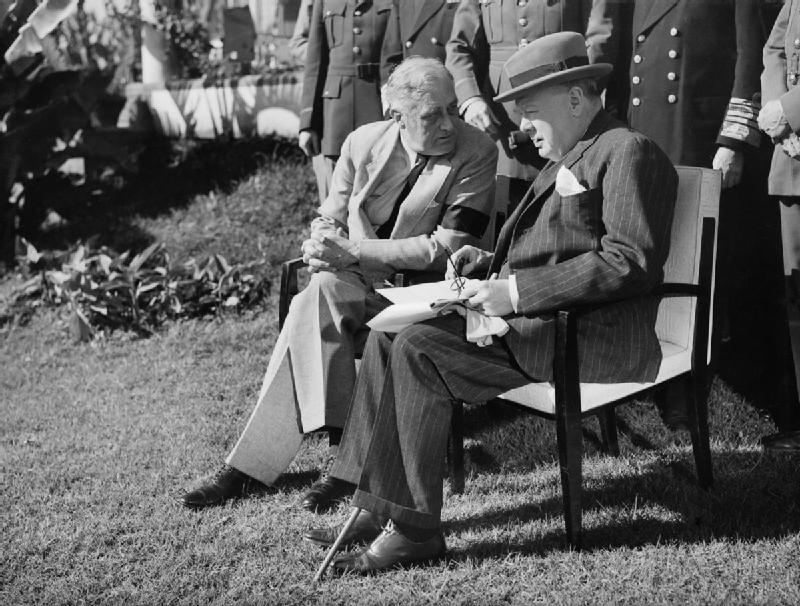Authors:
Historic Era: Era 8: The Great Depression and World War II (1929-1945)
Historic Theme:
Subject:
Spring/Summer 2008, Summer 2025 | Volume 58, Issue 4


Authors:
Historic Era: Era 8: The Great Depression and World War II (1929-1945)
Historic Theme:
Subject:
Spring/Summer 2008, Summer 2025 | Volume 58, Issue 4

Often, it is said that vast long-range economic and social forces, not the efforts of leading individuals alone, are what make history. The course of World War II refutes this seemingly rational thesis. Hitler began World War II; he and his principal adversaries—Britain’s Winston Churchill, America’s Franklin Roosevelt, and Russia’s Joseph Stalin—determined the conflict’s course and outcome. While the latter two effectively won the war in 1945, Churchill played a significant role by not losing it in 1940 and 1941.
If Churchill had not become prime minister of Britain in 1940 (or had the United States elected an isolationist, such as Herbert Hoover, as president), Hitler would have won. More than anyone else, Churchill understood that the entire British war effort depended on the United States. Roosevelt knew this, too, but it took him some time to recognize the full implications of the relations between the two nations. Among the war leaders, the Churchill-Roosevelt relationship would evolve into one of the most complex and decisive of the war.
Churchill and Roosevelt had met only once before, 22 years earlier in London, when the latter was assistant secretary of the navy. Roosevelt remembered the encounter, but Churchill had forgotten, which mildy irritated the president. Some advisors to the president, as well as his wife, Eleanor, were leery of Churchill, believing him to be a Tory imperialist who was too old and fond of drink. Much of this assessment would change, but not right away.
Early in 1939, Roosevelt had begun privately contacting political figures in Europe who appeared willing to stand up to Hitler. When installed as first lord of the admiralty in September, Churchill knew this and instigated his own confidential correspondence with the president; Churchill made it known to Prime Minister Neville Chamberlain and his foreign secretary, Lord Halifax. Then, on May 10, 1940—the day that Hitler invaded Belgium, the Netherlands, Luxembourg, and northern France—Churchill became prime minister of Great Britain. His relationship with Roosevelt took on new dimensions.
Over the course of the war, Churchill and Roosevelt would exchange nearly 2000 letters and telegrams, an unprecedented level of correspondence between two national leaders. In 1940, when Hitler came close to winning the war, Churchill and Roosevelt mostly communicated in writing. (While phone conversations did take place, Churchill preferred not to communicate this way.)
In May 1940, only the prime minister and a few others fully grasped the bleakness of Britain’s prospects—and that events were moving fast. Churchill’s letters and speeches clearly reveal his determination to rouse his compatriots and fight. “I have nothing to offer but blood, toil, tears, and sweat,” he famously said in his first speech to Parliament as prime minister on May 13. These words had little effect at the time, making no particular impression on Franklin Roosevelt. Unlike Churchill, the American president did not know that